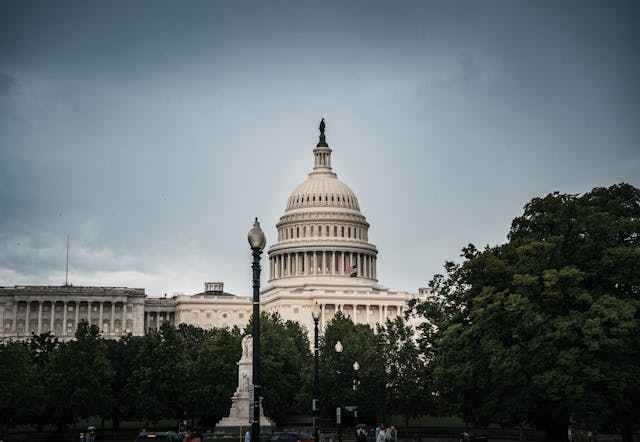
What is a filibuster? Filibuster has two meanings that are connected. The original, historical meaning of the word filibuster, is someone who “engages in an unauthorized military expedition into a foreign country or territory to foster or support a political revolution or secession”. The more modern meaning of the word filibuster is political, and it means “a parliamentary procedure in which one or more members of a legislative body prolong debate on proposed legislation so as to delay or entirely prevent a decision”.
The word “filibuster” comes from the Dutch word “vrijbuiter”, which meant freebooter, or someone who plundered ships without authority. The word was first used by the Spanish to refer to pirates that were raiding and capturing their merchant ships coming out of South America. These pirates may or may not have been carrying letters of marque that gave them permission to do so, but to the Spanish, they were all filibusters. Over time, it was used to refer to different people, but by the end of the 19th century, it was being used in English to refer to Americans who were trying to increase the size of the United States of America. The USA grew rapidly through the 19th century, especially with the acquisition of Alaska, and then Texas, California, and Nevada from Mexico. However, there was always the frontier spirit and the idea that the borders could be fluid. It could be argued that this is what happened in Texas when it was still owned by Mexico. Unauthorized Americans moved in, hoping that they could persuade the US to annex the area. That did actually happen, but not necessarily because of the filibusters. There were several Americans who tried to start wars in various South American countries, hoping that the US would step in and save them, but, for the majority of the time, the US government was against filibustering. At least, they were when it didn’t benefit them.
The word moved over into government in the middle of the 19th century. People have tried to prevent decisions being made by governments since the first governments. The first real recorded instances of it were in the Roman Republic. One of the rules of the Roman Senate was that all business needed to be concluded by the end of the day. To prevent things from being voted on, the famous orator Cicero would speak until time ran out. This is the general idea behind a filibuster. Such techniques have been used in many other governments as well, but most governments stipulate that the person doing the speaking must be relevant to the topic at hand. This makes it slightly more difficult to speak for hours on end, but certainly not impossible. Members of governments can usually take questions from other members or have other members address certain points, which increases the length of the speech. Some governments limit the length of time a member can speak for, but of there are several members who want to defeat the bill, they can speak in turn, each one using their allocated time. These occasions were known as “talking out the government”. They only became known as filibusters after the term was first used in the USA. In the 1850s, military filibustering was still common, especially in South America. Several US citizens attempted to take over countries down there. In 1853, the US Congress was talking about annexing Cuba and the congressman for Mississippi, Albert Brown, accused the congressman from North Carolina, Abraham Venable, of “filibustering against the United States” because he was against the idea of annexation. This appears to be the first time the word was used to refer to government. It was then taken up, probably sarcastically, by the US media and it grew in usage.
The US took a slightly different approach to filibustering. Senators are allowed to talk about any subject they want for as long as they want in order to prevent a motion from being passed. The idea appears to be that there should always be a way for a minority to still be able to hold up or even defeat a majority. This is the only way to protect the people. When a bill comes to Congress to be approved, it only needs 51% of votes to pass. However, it requires 60% of the people present to vote to cease debating before they can have the vote on the bill. That means the minority party in Congress, or sometimes even just a few people in that minority party, can filibuster until there is no time left to vote on the bill. It used to be a very rare occurrence, but it is growing. Between 1917 and 2012, there were 1,000 filibusters. Between 2012 and 2024, there have been another 1,000. This is a huge problem and has often prevented Congress and the government from doing anything useful. The filibuster needs to be reformed, as anyone can tell, but the problem is that any bill to reform the filibuster system will be prevented from passing by the filibuster system. Ironic. And this is what I learned today.
Sources
https://en.wikipedia.org/wiki/Filibuster_(military)
https://en.wikipedia.org/wiki/Filibuster
https://www.pbs.org/opb/historydetectives/feature/the-filibuster-movement
https://www.brennancenter.org/our-work/research-reports/filibuster-explained
https://www.bbc.co.uk/programmes/articles/1XYVnNjTzM6hGTlbCsVmy9T/the-political-filibuster
https://www.bbc.com/news/magazine-35714278
Photo by Optical Chemist: https://www.pexels.com/photo/stunning-view-of-us-capitol-building-in-washington-dc-33347809/
